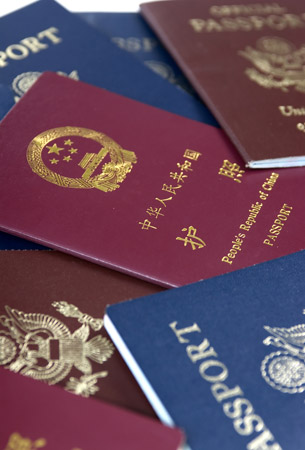Travel Essentials: Visa and Passport
Summary of Requirements
Passport
- Required for citizens of countries outside of the European Union and the European Economic Area, including the United States, Canada, New Zealand, and Australia
- Not required for citizens of the European Union and the European Economic Area
Visa
- Not required for citizens of Australia, Canada, Ireland, New Zealand, the United Kingdom, the United States, San Marino, Vatican City, and Schengen member states
- Not required for citizens of several other nations;
see section Visa-Exempt below - Required for citizens of other countries;
see the list in section Visa Required below
Return Ticket
- Return-trip booking or ticket or proof of available funds for transport required to apply for tourist visa
Additional Restrictions
- All travelers entering Italy must provide documentation to justify the reasons and duration of their stay, and prove their means of subsistence throughout their planned visit
- Citizens of some countries are required to obtain visas for transit through Italian airports; see section Visa Required below
Passport
Citizens of the European Union and the European Economic Area may present a valid national identity card instead of a passport. Citizens of Australia, Canada, New Zealand, and the United States must provide a passport or another travel document recognized as valid by the Italian government.
Visa
Citizens of Australia, Canada, Ireland, New Zealand, the United Kingdom, and the United States do not need a visa to enter Italy.
Visa-Exempt
Citizens of San Marino and Vatican City do not need a visa to enter Italy.
Italy is a member of the Schengen Area. The Schengen Agreement allows those entering the participating countries travel without restriction in the Schengen area for up to three months. Countries observing the Schengen Agreement are: Austria, Belgium, Czech Republic, Denmark, Estonia, Finland, France, Germany, Greece, Hungary, Iceland, Italy, Latvia, Lithuania, Luxembourg, Malta, Netherlands, Norway, Poland, Portugal, Slovakia, Slovenia, Spain, Sweden, and Switzerland.
Citizens of the following countries are also visa-exempt for visits up to 90 days: Andorra, Antigua and Barbuda, Argentina, Australia, Bahamas, Barbados, Brazil, Brunei, Canada, Chile, Costa Rica, Croatia, Cyprus El Salvador, Guatemala, Honduras, Hong Kong SAR, Israel, Japan, Liechtenstein, Malaysia, Macao SAR, Mauritius, Mexico, Monaco, New Zealand, Nicaragua, Panama, Paraguay, Saint Kitts and Nevis, Seychelles, Singapore, South Korea, United Kingdom, United States, Uruguay, and Venezuela.
Citizens of Albania, Bosnia Herzegovina, Macedonia, Montenegro, and Serbia are visa-exempt if holding biometric passports.
Citizens of San Marino, the Holy See (Vatican City), and Switzerland do not require a visa in any case.
Visa Required
Citizens of the following countries are required to obtain a visa to enter Italy: Afghanistan, Albania, Algeria, Angola, Armenia, Azerbaijan, Bahrain, Bangladesh, Belarus, Belize, Benin, Bhutan, Bolivia, Bosnia and Herzegovina, Botswana, Burkina Faso, Burundi, Cambodia, Cameroon, Cape Verde, Central Africa, Chad, China, Colombia, Comoros, Congo, Congo (Democratic Republic), Côte d'Ivoire, Cuba, Djibouti, Dominica, Dominican Republic, East Timor, Ecuador, Egypt, Equatorial Guinea, Eritrea, Ethiopia, Fiji, Gabon, The Gambia, Georgia, Ghana, Granada, Guinea, Guinea Bissau, Guyana, Haiti, India, Indonesia, Iran, Iraq, Jamaica, Jordan, Kazakhstan, Kenya, Kyrgyzstan, Kiribati, Kosovo, Kuwait, Laos, Lebanon, Lesotho, Liberia, Libya, Madagascar, Malawi, Maldives, Mali, Marshall Islands, Mauritania, Micronesia, Moldova, Mongolia, Morocco, Mozambique, Myanmar, Namibia, Nauru, Nepal, Niger, Nigeria, North Korea, Northern Mariana Islands, Oman, Pakistan, Palau, Palestinian Territories, Papua New Guinea, Peru, the Philippines, Qatar, Russia, Rwanda, Saint Lucia, Saint Vincent and the Grenadines, Solomon Islands, Sao Tome and Principe, Saudi Arabia, Senegal, Sierra Leone, Somalia, South Africa, Sri Lanka, Sudan, Suriname, Swaziland, Syria, Tajikistan, Taiwan, Tanzania, Thailand, Togo, Tonga, Trinidad and Tobago, Tunisia, Turkey, Turkmenistan, Tuvalu, Uganda, Ukraine, United Arab Emirates, Uzbekistan, Vanuatu, Vietnam, Western Samoa, Yemen, Zambia, and Zimbabwe.
Citizens of the following countries are required to obtain visas for transit through Italian airports: Afghanistan, Bangladesh, Democratic Republic of the Congo, Colombia, Eritrea, Ethiopia, Ghana, Iran, Iraq, Nigeria, Pakistan, Senegal, Somalia, and Sri Lanka.
Visa Requirements
To obtain a tourist visa to enter Italy, the following documents are required:
- Recent passport-style photo
- Passport or travel document valid for at least three months after visa expiry date
- Return-trip booking or ticket or proof of available means of personal transport
- Proof of available lodging in Italy: tourist vouchers, hotel booking, or offer of hospitality
- Proof of economic means of support
- Documentation of socio-professional standing
- Health insurance policy with a minimum coverage of €30,000 for emergency hospital and repatriation expenses
Please note that additional documents may be required in some cases.
Visa Types
Italy issues the following types of visas/permits:
- Tourist
- Adoption
- Business
- Family
- Medical treatment
- Diplomatic
- Accompanying dependent
- Sporting competitions
- Invitations
- Self-employment
- Subordinate employment
- Religious reasons
- Mission
- Re-entry
- Elective residence
- Study
- Transit
- Airport transit
- Transport
- Work vacation
More Information
All foreigners intending to enter Italy must provide documentation to justify the reasons and duration of their stay, and prove their means of subsistence throughout their planned visit.
Please note that this information is subject to change. Travelers are advised to obtain the most current information from a primary source. For more information about visas, residence, and immigration, as well as applications and fee information, please visit the website of Italy’s Ministry of Foreign Affairs (Ministero degli Affari Esteri), www.esteri.it, or contact the nearest Italian Embassy or Consulate.
Source: Ministry of Foreign Affairs, Italy
Copyright © 1993—2025 World Trade Press. All rights reserved.

 Italy
Italy 